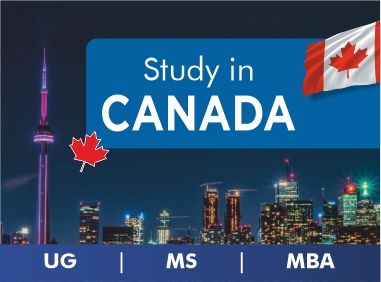
Why Do Your PhD Abroad?
There are many advantages of studying abroad. Some PhD students do so in order to learn a new language, gain a better understanding of a different culture and meet new people.
A doctoral degree can be studied abroad for a variety of reasons. For example, a specific research subject may not be extremely popular in some countries, therefore there may not be many PhD possibilities accessible. In such circumstances, pursuing a PhD degree in abroad will offer a number of new opportunities. It may also provide good funding, reasonable/affordable tuition fees, improved laboratory equipment, and more experienced supervisors. These reasons could not only make your PhD more pleasurable, but they could also help you in your profession.
Is It Difficult to Apply to PhDs Abroad?
When it comes to applying for a PhD in a foreign nation, it’s not as difficult as you would think. Whether you’re applying to a university in the EU, United Kingdom, Finland, Spain, United States, or Asia, the process is almost the same.
The difference in the application process can be categorized in the following areas:
- Documents required
- The language proficiency tests you need to give
Applying for a PhD Degree Abroad
If you are looking for the answer on ‘how to apply for PhD in foreign universities?’ then you must go through the information mentioned below:
- It is important to note that for a PhD from abroad with the scholarship you should excel in the general GRE exam and the subject GRE.
- You must tell the universities the specific area you wish to specialize in after you are sure when to apply for PhD This should be an area that interests you a lot. If you have some idea of the topic as well, go ahead and inform the admissions committee. They will know that you have done your homework and you are serious about obtaining a PhD degree.
Studying for a PhD Program
- While enrolling for PhD abroad Program, Initially, you enroll as a PhD student. After completing the required coursework and qualifying exams, you become a PhD candidate. You will spend the bulk of your time completing the dissertation
- Prior to candidacy, you must pass certain courses and qualifying examinations that usually consist of both written and oral components (IELTS/TOEFL). For the United States, most universities require a GRE score in your application and would like to review it along with your application, so take the GRE seriously!
- The written component is usually in the form of a series of cumulative exams, in which your breadth of knowledge of your field is extensively tested
- Oral components of the qualifying examinations usually consist of the defense of an original yet feasible research proposal. Upon acceptance into candidacy, your progress is usually overseen by a dissertation advisor.
- The successful completion of a PhD from abroad with a scholarship typically takes 3 to 10 years depending upon the specific field of study, prior experience and/or training, and the progress made by you in your studies.
- In some fields, such as some specific branches of physics, a doctoral degree is practically essential for employment.
Check Your Score Now with a Free Practice Test
See where you stand with our practice tests. Find the right way to improve with our strategy sessions.
PhD Abroad: Top Careers
- Public Sector and Science
- Medical Research Centres
- College Professor
- Analysts
- Government Sectors
- Geological Sectors
- Science Writing
- Scientific Advisor
- Patent Lawyer
- Medical Research and Development Centres
The Teaching Assistantship
- A Teaching Assistantship is an assignment given to all PhD candidates and some grad school students to teach undergraduate courses in your subject in that university.
- For most students pursuing their Masters or PhD; a Teaching Assistantship, or TA, adds the necessary practical experience for a future career in academia.
- There are other fellowships that you can pursue if being a TA is not desirable. You can also assist senior researchers and professors as Research Assistants, or RA, in the laboratory.
The Thesis and Dissertation
Once you have decided to go for a PhD program, there are several factors that need to be considered before you finally decide upon the university and mentor where and under whom respectively you will complete your dissertation.
Choosing Mentor and University
- This is the most important aspect of your PhD study.
- While there are many good professors around, your strategy should be to choose the one that is interested in your line of work.
- Align your thesis subject and requirements carefully with those of a professor whose interests lie in the same direction and then approach him/her. The more homework you do the better for you as the chances of getting an ideal mentor.
- Ensure that the university or department you are applying to specializes in your stream.
An overseas PhD program can significantly change the course of your career by improving your prospects, helping you make meaningful contributions in your field of study, and providing you with the right peer group, research guidance, funding and facilities to fuel your passion. Many Indian students, looking for quality higher education, aim for a PhD degree from esteemed universities across the world. For most aspirants, it is the next logical step after completing their master’s that helps them delve deeper into the nuances of the subject of their choice. Currently, the doctorate degree is awarded by several universities all over the globe for a wide array of programs.
Today, the US, the UK, Canada, Germany, and Australia are among the leading nations offering PhD programs to international students who have completed a bachelor’s or a master’s degree with good grades and possess substantial research acumen and experience. However, there are several steps to be taken into account before you can start applying to the University of your choice:
1. Research the Programs and Decide Specialisation
The journey of an overseas PhD program begins with proper research of the universities offering the specialized course in a particular country clubbed with their eligibility/entry requirements. You must also keep in mind the deadlines for applying to the degree of your choice and the topic or specialization that you want to do the doctorate degree in. Deciding on the specialisation can be the single most crucial factor in determining your future, and must be done after proper research of the universities, the facilities, the faculty (in the topic you have chosen) and their areas of expertise.
2. Zero-in on Your Supervisor and Start Networking
When it comes to choosing a supervisor for your research under the University of your choice, please remember there are no shortcuts. Depending upon the specialisation/topic you have chosen, it is very important to choose a supervisor who is knowledgeable in the area and his/her research interests align with yours.
Your potential supervisor must also have experience in handling a similar thesis project in order to guide you successfully in your PhD You must also know the academic and research background of the supervisor, the number of students that he/she handles in each semester, and the kind of support that he/she would provide you once you join. Since any established research supervisor received scores of requests from PhD aspirants, but can only cater to a handful of students per semester, it is imperative that you contact them formally (through an email) to reserve a spot. The networking email should suggest that you have done ample research about his/her field of specialisation/research and that you are eager to be associated with him/her. You must also follow up with the supervisor regularly and ask relevant questions regarding your PhD, which in turn would help you put together a great university application.
3. Complete the Application and Plan Ahead
No matter how well you have researched the curriculum and how significant your educational accomplishments are, your university application is the most exigent document that can land you to the University of your dreams. Thus, you must ensure that your background, strengths, passion, and aspirations are highlighted clearly. Speaking of future aspirations, you must also consider what you want to do after getting the coveted doctorate degree. Whether you want to pursue a career in academics, research, or any other field; you ought to prepare yourself to learn according to the needs of your future role to secure a good footing in the industry that you wish to be a part of.
Are You Planning to Pursue PhD Abroad?
Click Here to Book Your Free 1-On-1 Session with Experts
Will I Need a Student Visa to Study PhD?
Whether a student needs a student visa or not would depend on the country you are applying to.
- Applicants from non-EU countries will require a Tier 4 Visa in UK. This will enable them to pursue a full-time PhD.
- In Germany, most students will need a residence permit rather than a student visa.
- In USA, students would need to apply for an F-1 student visa.
- The requirements in Asia will depend on the country you are applying to. In China, you’ll need an X1 Student Visa, whereas, in Singapore, you’ll need a Student Pass.
For getting information regarding the admission requirements, it is recommended to check the government website of the specific country you want to apply to.
PhD in Different Countries
All doctoral candidates are required to submit a thesis or project that would include their original research at the last leg of the course. However, universities from different countries may have slightly different requirements from students in regard to the admission process and the criteria for passing. For example, in New Zealand, students need to appear for an oral examination based on the thesis they have written before the doctorate degree is awarded. In the UK, PhD aspirants do not have to appear for any formal written examinations but have to produce an externally examined thesis that they have written. For PhD in the US, the universities require letters of recommendation and an essay based on the purpose of doing the doctorate. In Australia, students need to provide a review of relevant research literature and an original research project along with the thesis to get a doctorate degree. Choosing the best country for a PhD can depend on these varying requirements and personal preferences.
Hence, it is wise to conduct ample research on the country-specific and university-specific requirements before applying for a PhD degree abroad.
If you are looking for the answer on ‘how to apply for PhD abroad from India?’ then you must go through the information mentioned below:
How to Apply for PhD Abroad From India in EU Countries?
There are normally two ways to apply to UK universities. You have the option of applying directly through the university’s website or through the UCAS Postgraduate system. In Spain, Italy, and Germany, you must first pass a pre-application process before applying for a PhD. This makes sure that your credentials fulfill their PhD eligibility criteria.
It would be helpful to speak with your government before beginning this pre-application process. They may be able to advise you on how your country’s qualification system relates to the PhD host country’s qualification system. The university will assess your application and contact you once your application has been approved. Most EU institutions will contact you through Skype or telephone for an interview.
How to Apply for PhD Abroad From India in USA?
International applicants will need to give additional exams in addition to the English language exams to be eligible for PhDs in the United States. The GRE General Exam and the GRE Subject Exam are the two tests.
In comparison to other countries, obtaining a PhD in foreign countries like the United States can be challenging. Therefore, it is recommended to apply to at least nine different institutions in order to maximize your chances of getting admission.
How to Apply for PhD Abroad From India in Asia?
As there are a number of countries in Asia such as China, Hong Kong, Singapore, South Korea, the United Arab Emirates, and India, their application processes differ from each other. As a result, to get the most accurate information, check the specific application process for each university you’re interested in.
How to Apply for PhD Abroad From India in Australia?
In order to apply for a PhD in foreign countries like Australia, you must first locate and email a suitable supervisor. If you’re an overseas student who applies to the institution without completing this step, you will diminish your chances of getting admission in Australia.
The supervisor will instruct you to submit a formal application after discussing the project with them. If an Australian university thinks you’re a strong candidate, they’ll likely invite you to a Skype or phone interview, just like EU institutions.
PhD Abroad: Eligibility Criteria
PhD eligibility criteria for pursuing PhD in foreign countries:
- A high GPA score
- Academic Transcripts
- Undertaken Ventures
- Scores of tests like GRE, TOEFL, etc.
- Papers Posted, if any,
- If submitted, dissertations
- Participation in co-curricular activities related to the research subject you have selected
- Letters for Recommendation
PhD in Abroad With Scholarship
If you are looking for the answer on ‘how to apply for PhD abroad with scholarship?’ then you must go through the list of scholarships offered to international students:
Following are the different types of PhD scholarships for Indian students:
- Full scholarship: Full scholarship will cover all charges, including tuition, accommodation, and food costs, as well as other expenses.
- Partial scholarships: Under partial scholarships, students will receive partial financial aid in the form of paying their tuition, housing expenses, or other expenses stated by the trust fund.
| Name of the Scholarship | Country | Amount |
|---|---|---|
| AAUW International Fellowships For Women | US | INR 1,467,586.83 |
| The University Of Nottingham | UK | The scholarship covers the entire tuition fee with a monthly stipend allowance of £1,015. |
| Australian Government Research Training Program (AGRTP) International Scholarships At Flinders University | Australia | AU$28,092 with an establishment allowance of AU$1,485. |
| Gates Cambridge Scholarships | UK | Covers the full cost of studying at Cambridge, which includes tuition fees, travel costs, visas, and other expenses. Additional funding such as academic funding, fieldwork, family allowances, etc. will be offered on discretion |
| Vanier Canada Graduate Scholarships | Canada | $50,000 per year |
If you are looking for the answer on ‘how to apply in foreign universities for PhD?’ then you must go through the list of PhD universities for international students:
PhD Abroad: Top Countries
Here are some of the top countries to study PhD abroad for Indian students:
• France
• Hong Kong
• United Kingdom
• United States of America
• Australia
• Germany
• Canada
• Japan
• Singapore
PhD Abroad: Top US Universities
Here are some best universities for PhD abroad:
| US Rankings | University Name |
| 1 | Stanford University |
| 2 | Massachusetts Institute Of technology |
| 3 | California Institute Of Technology |
| 4 | Harvard University |
| 5 | Princeton University |
| 6 | Yale University |
| 7 | University of Chicago |
| 8 | John Hopkins University |
| 9 | University of Pennsylvania |
| 10 | University of California, Berkeley |
PhD Abroad: Top Australian Universities
| QS World University Rankings 2022 | University |
| 31 | Australian National University |
| 40 | University of Sydney |
| 41 | University of Melbourne |
PhD Abroad: Top European Universities
| World University Rankings 2022 | University |
| 1 | University of Oxford |
| 6 | University of Cambridge |
| 11 | Imperial College London |
| 14 | ETH Zurich |
| 16 | UCL |
PhD Abroad: Top German Universities
| THE Rankings 2020 | University |
| 32 | LMU Munich |
| 43 | Technical University of Munich |
| 44 | Heidelberg University |
| 74 | Humboldt University of Berlin |
| 89 | University of Freiburg |
| 99 | Rwth Aachen University |
| 117 | Free University of Berlin |
| 123 | University of Gottingen |
| 175 | Karlsruhe Institute of Technology |









































